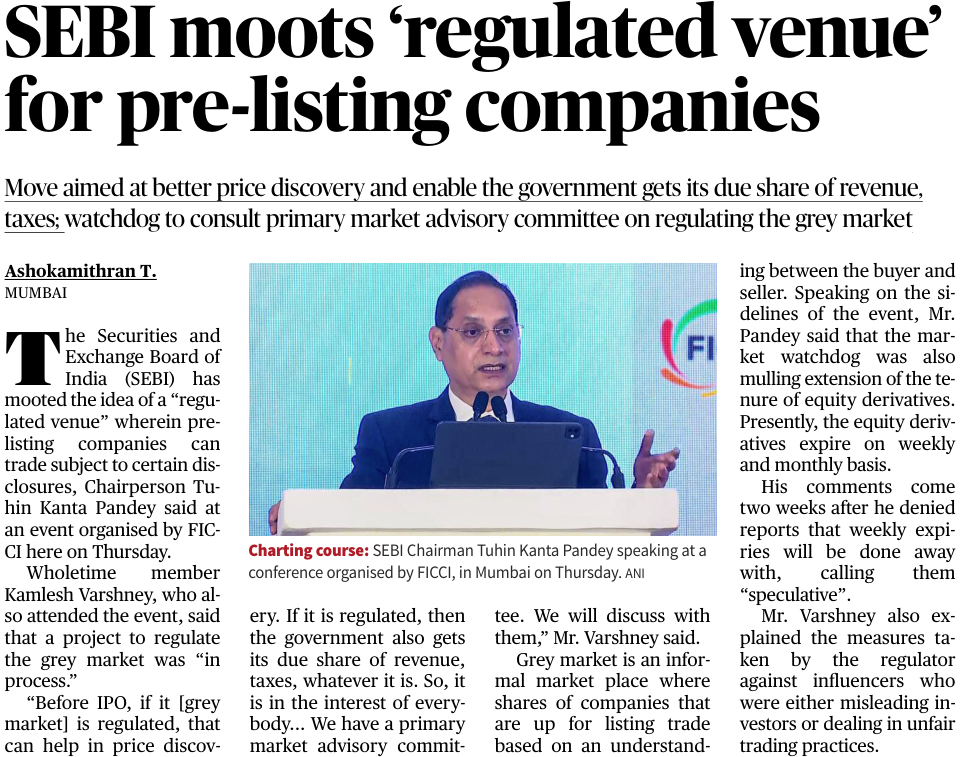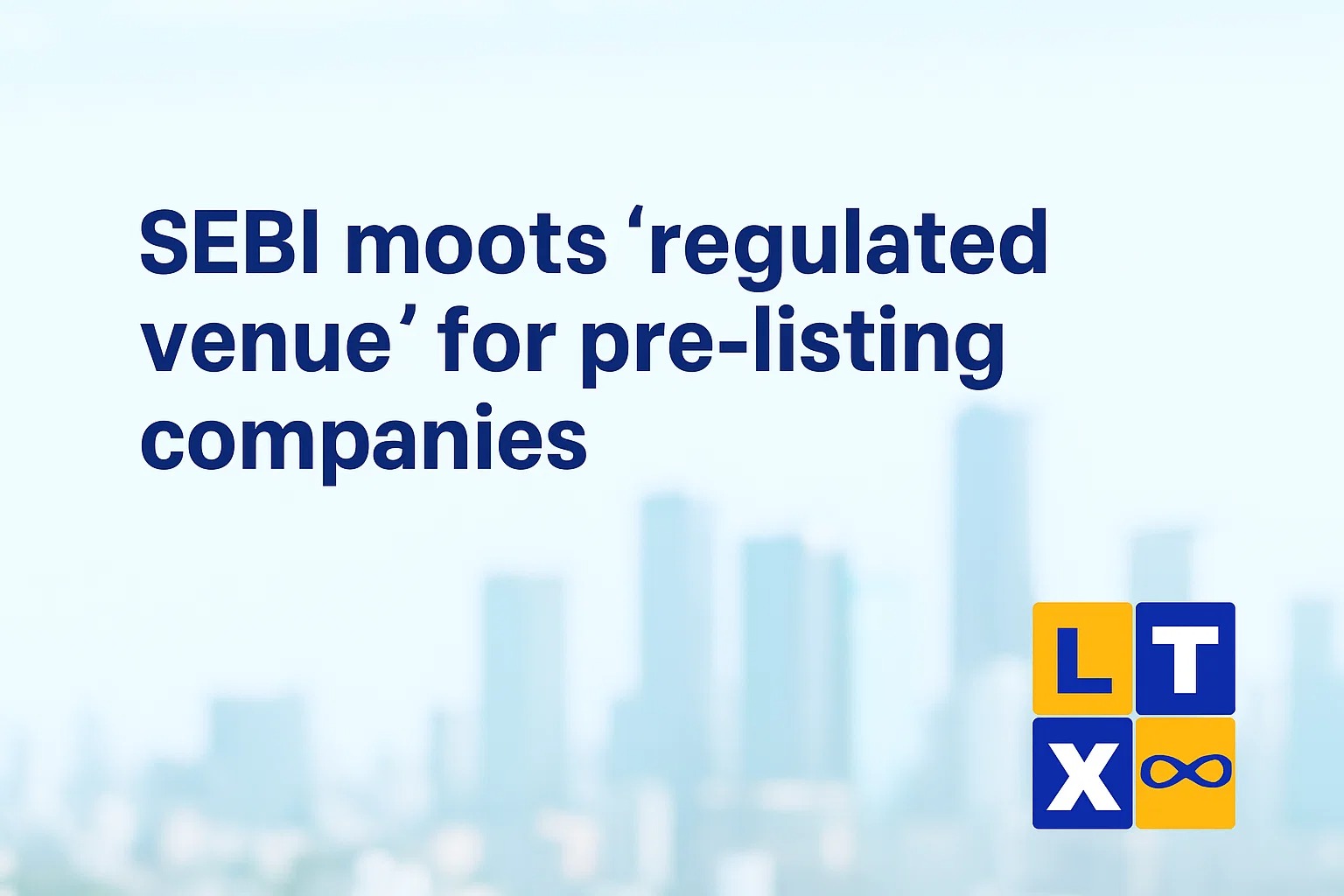SEBI moots ‘regulated venue’ for pre-listing companies

Why in News?
The Securities and Exchange Board of India (SEBI) has proposed creating a regulated platform for pre-listing companies to trade their shares, aimed at better price discovery and regulation of the grey market.
What is the Grey Market?
The grey market is an informal trading space where shares of companies (yet to be officially listed on stock exchanges) are bought and sold. · Deals are based on mutual understanding between buyers and sellers without official disclosure or regulation. · Popularly, the “Grey Market Premium (GMP)” is tracked by investors to gauge demand before IPOs. · The Grey Market Premium (GMP) is the unofficial premium at which an IPO share is trading before listing. · Example: If an IPO issue price is ₹500 and the GMP is ₹100, it means buyers in the grey market are willing to pay ₹600 per share on listing day.
Two Types of Deals
- Application (Kostak) Deal
- An investor applies for IPO shares officially.
- Before allotment, he sells his application in the grey market at a fixed premium (Kostak).
- The buyer pays him upfront and takes the risk/reward of allotment.
- Share (Premium) Deal
- After allotment, but before official listing, the seller (allottee) agrees to sell allotted shares at an agreed premium.
- The transaction happens off-record, based on trust and market operators.
The News
- SEBI Chairperson Tuhin Kanta Pandey announced that SEBI is considering a “regulated venue” where pre-listing trades can take place with disclosures and oversight.
- This move would:
- Aid price discovery before IPO.
- Ensure the government gets revenue and taxes from such trades.
- Primary Market Advisory Committee (PMAC) will be consulted on regulating the grey market.
Analysis - Significance of Regulation:
- Formalising the grey market can increase transparency, protect retail investors, and reduce chances of manipulation.
- Government revenue from currently unmonitored trades will improve fiscal compliance.
- Impact on IPOs:
- A regulated pre-listing trading space may make IPO pricing more reflective of true demand and supply.
- Could reduce speculation and volatility around IPO day.
- Investor Protection:
- Oversight will safeguard small investors from fraudulent operators in the grey market.
- Global Parallels:
- Similar regulated secondary markets exist abroad (e.g., NASDAQ Private Market in the US) where private company shares are traded before IPO.
UPSC Prelims MCQ Q. Consider the following statements about the Grey Market in India:
1. It is an informal marketplace where shares of companies are traded before official listing.
2. The transactions are regulated by SEBI through the Primary Market Advisory Committee.
3. Grey Market Premium (GMP) indicates the unofficial demand for IPO shares. Which of the statements are correct?
- (a) 1 and 2 only
- (b) 2 and 3 only
- (c) 1 and 3 only
- (d) 1, 2 and 3
✅ Correct Answer: (c) 1 and 3 only Explanation: - Statement 1 – Correct: The grey market is indeed an unregulated and informal space where shares are traded before official listing.
- Statement 2 – Incorrect: Currently, SEBI does not regulate the grey market. It has only proposed consultation with the Primary Market Advisory Committee to explore regulation.
- Statement 3 – Correct: Grey Market Premium (GMP) reflects the unofficial price at which IPO shares are being demanded/offered in the grey market, often used to guess IPO listing gains.



